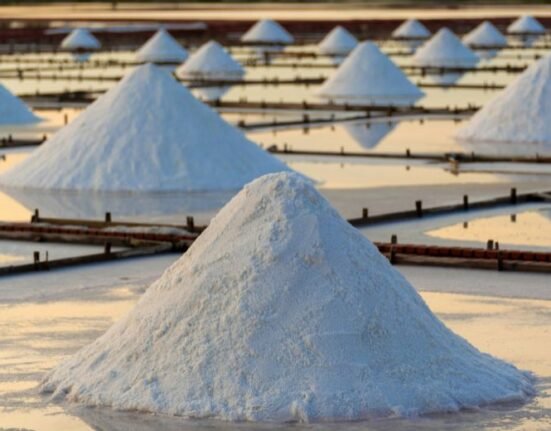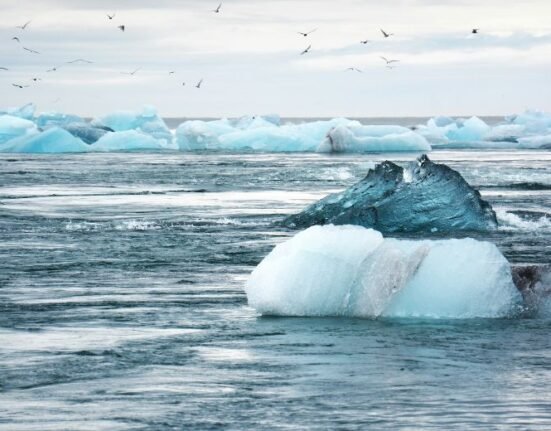Bharti Jayshankar
February 10, 2024: A new research published in Science Advances says the collapse of the Atlantic Ocean current – called the Atlantic Meridional Overturning Circulation or AMOC due to increased freshwater inflow from melting ice, may trigger a nightmare scenario of climate instability. The world will witness increased temperatures and rising sea levels in the southern hemisphere and freezing temperatures in the Northern regions.
Global warming timeline accelerated
According to newer climate models of research, the estimates of this global warming scenario are not centuries away, but some decades away. The scientists and researchers are warning that these warnings are not alarmists or some Hollywood climate disaster blockbuster, but a reality staring us in the face.
The disruption of AMOC would change the weather patterns worldwide because it means a shutdown of one of the key climate and ocean forces of the planet. It would plunge northwestern European temperatures by 9 to 27 degrees (5 to 15 degrees Celsius) over the decades, extend Arctic ice much farther south, and turn up the heat even more in the southern hemisphere. The authors said it would shift Asian monsoon rainfall patterns and even reverse the rainy and dry seasons in the Amazon.
The AMOC distributes both warmer and colder water between the two poles via a network of deep and near-surface ocean currents. The pole currents push the water deep down horizontally and maintain the current strength and its warmth.
Dire consequences of AMOC
If this ocean pattern and current is upset then the whole world’s weather pattern will change along with rising sea levels on the eastern coast and drying food sources both due to the cold and unprecedented rainfalls.
It’s a global shift,” said Utrecht University climate and physics researcher René van Westen, co-author of the study. “Along with changes in rain distribution, an AMOC collapse could also make some other related ocean currents in the Atlantic, like the Gulf Stream, partly vanish,” he said.
“This leads to a lot of dynamic sea level rise, up to a meter in the North Atlantic under an AMOC collapse,” he said. “And you need to add that on top of the sea level rise already caused by global warming. So the problems are really severe.”
Without warm water flowing toward the Arctic, he added, winter sea ice could expand as far south as England, and some regions of Europe would quickly dry out and cool by as much as 1.5 degrees Celsius per decade.
In the study, van Westen’s team modeled a theoretical span of about 2,200 years, starting with pre-industrial climate conditions and simulating a gradual increase in surface freshwater input to the North Atlantic, to trigger an abrupt AMOC tipping event at model year 1,758.
Past events and current trends align
A similar phenomenon of an Atlantic current breakdown occurred some 12,000 years ago and most climate scientists think it triggered the Younger Dryas cold event around the northern Atlantic where the regions around the Arctic saw glaciers advancing and the Northern Hemisphere undergoing dry wintry spells with temperatures going lower by 4 to 5-degree celsius. As of 2021, the melting Greenland Ice Sheet was adding about 400 billion tons of water to the North Atlantic each year. According to a 2021 study, freshwater is adding to the rising levels.
The Intergovernmental Panel on Climate Change’s latest climate assessment estimates the chances of an AMOC breakdown this century at less than 10 percent. But the study has put the collapse at not a too distant future and governments and the scientific community shall ignore it at humanity’s peril.








